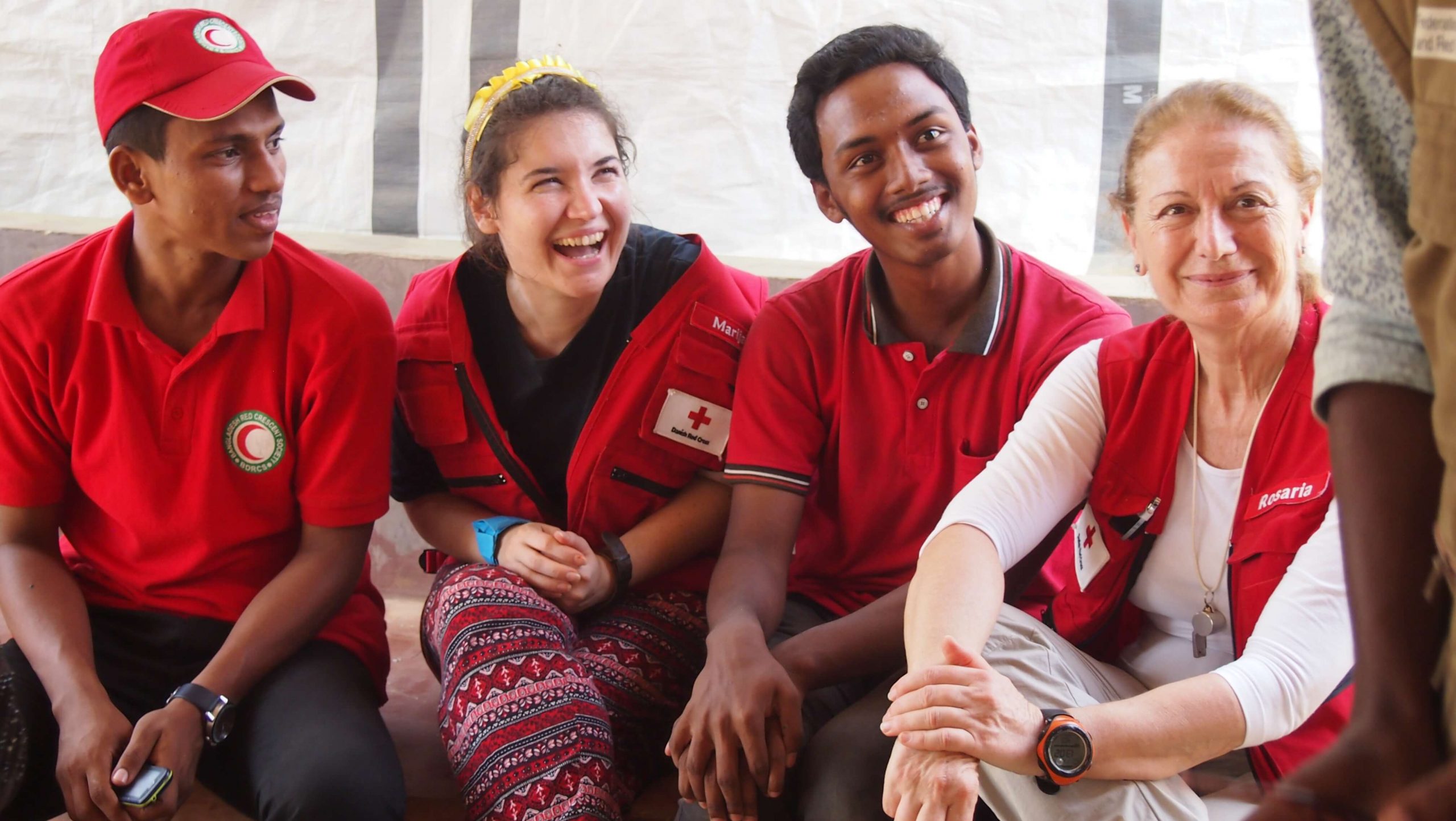
- This event has passed.
Psychosocial Support in Emergencies – an online training

A four-day on-line course in development and practical implementation of mental health and psychosocial support strategies in humanitarian settings as pandemics is offered online. The training is a pilot and carried out online due to COVID-19. The training methodology is based on problem-based learning using practical exercises, group work, role plays, case studies and requires active on-line participation.
An emergency and disaster intervention effort without a mental health and psychosocial support strategy is incomplete. To ensure the best possible short and long-term effects of the mental health and psychosocial support (MHPSS), the implementation requires specialized knowledge of a number of disciplines within the field. The training is for IFRC and Red Cross Red Crescent Societies focal persons, key volunteers and delegates are responsible for initiating the overall mental health and psychosocial activities and interventions during emergencies.
Training objectives
Upon completion of the course participants will be:
- Prepared for work as psychosocial support responders in humanitarian operations including pandemics
- Equipped with a psychosocial technical skills-set allowing them to rapidly assess, plan, coordinate and implement priority psychosocial interventions during different types of disasters and emergencies
- Trained to identify needs for protection and integrate such measurements in mental health and psychosocial support approaches
- Advocate for needs of mental health and psychosocial support activities and programmes Able to develop key messages for those affected by an emergency
- Able to engage and collaborate with relevant stakeholders in the communities and participate in relevant coordination bodies
- Knowledgeable of how to identify, train and support volunteers as well as how to build resilience in volunteers
- Principles and guidelines for mental health and psychosocial support and protection in emergencies
- Preparing for missions and remote support
- Assessments and data collection
- Psychosocial triage and remote triage in acute situations
- Violence prevention and protection in emergencies
- Collaborating with or integrating tracing services in responses
- Psychological First Aid in emergency operations
- Establishing mental health and psychosocial support activities
- Identifying and collaborating with key stakeholders in the community such as faith-based leaders
- Managing volunteers and developing a training plan for volunteers
- Developing key MHPSS messages for the affected
- Advocating for MHPSS with key stakeholders
- Monitoring and evaluation
- Developing a plan of action
- Coordination and cooperation
- Have knowledge of psychosocial consequences of emergencies, stress and coping as well as good facilitation skills and insight into adult education methodologies
- Actively participate in all sections and tasks related to the training
- Have a background in education, social work, psychology, psychiatry, mental or public health or similar fields
- Relevant COVID-19 materials on pscentre.org
- Health Emergency Response Unit – Psychosocial Component Delegate Manual (IFRC PS Centre, 2019)
- IASC Guidelines on Mental Health and Psychosocial Support in Emergency Settings: Checklist (IASC, 2007)
- Five Essential Elements of Immediate and Mid-Term Mass Trauma Intervention: Empirical Evidence. (2012)
- Online PFA training for COVID – basic and additional modules. pscentre.org
- A Guide to Psychological First Aid for Red Cross Red Crescent Societies. (IFRC PS Centre, 2018)
- Operational Guidance for Child Friendly Spaces in Humanitarian Settings. (World Vision and IFRC PS Centre, 2018)
- Activity Catalogue for Child Friendly Spaces in Humanitarian Settings. (World Vision and IFRC PS Centre, 2018) pscentre.org
- Inter-Agency Guide to the Evaluation of Psychosocial Programming in Humanitarian Crises. (UNICEF, 2011)
